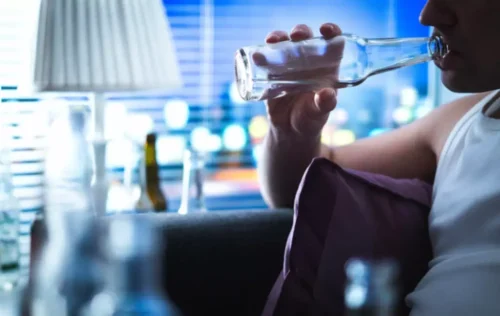
If alcohol use is affecting your mental health, Charlie Health may be able to help. Beyond physical health, alcohol addiction also affects mental well-being, contributing to anxiety, depression, and suicidal thoughts. Socially, it strains relationships, disrupts careers and leads to legal and financial troubles. Many individuals with alcohol use disorder experience job loss, homelessness, or criminal charges due to impaired decision-making and dependence. Alcohol recovery is necessary because untreated alcohol addiction leads to severe health risks, including liver disease, mental health disorders, and even overdose.
- If you drink only once in a while, you’re unlikely to have withdrawal symptoms.
- “Throat still hurts a bit from the vomiting, still sweating and clammy, can’t sleep, have a bit of heartburn/indigestion. Visiting the toilet is becoming less frequent. Even managed to get a small meal in.”
- By one year, alcohol is no longer a major thought in your daily life.
- Additionally, it can exacerbate existing mental health issues like depression, anxiety, or other mental health disorders.
- Be prepared.Talk to your doctor or a drug treatment specialist about what to expect.
What Are the Stages of Alcohol Recovery?

While these symptoms are more severe than Stage 1, they are not life-threatening. Contact your state’s mental health/substance use agency for more guidance on how to afford rehab. Anti-seizure drugs such as gabapentin and carbamazepine can help reduce your craving for more alcohol. Studies show that gabapentin can also help improve your sleep and mood, which may make you less likely to relapse. For women, heavy drinking means four or more drinks on any day or eight or more drinks per week.

Alcohol Withdrawal Stages and Severity
- Treatment is often a two-pronged approach involving psychotherapy (talk therapy) and medication.
- If a person abruptly stops consuming alcohol after prolonged, excessive use, they may experience hallucinations.
- Go to the nearest emergency room or call 911 (or your local emergency service number) if you or a loved one has any concerning symptoms of alcohol withdrawal.
- “I am much calmer, anxiety has subsided, stomach better, have an appetite, and sleeping eight hours without waking up at 4 a.m.”
- Never disregard professional medical advice or delay in seeking it because of something you have read on this website.
Call your provider or go the drug addiction emergency room if you think you might be in alcohol withdrawal, especially if you were using alcohol often and recently stopped. Call for an appointment with your provider if symptoms persist after treatment. You may have more severe withdrawal symptoms if you have certain other medical problems. However, some people may find that their symptoms persist for longer. When a person is detoxing from alcohol, the symptoms may begin anywhere from 6 hours to a few days after their last drink.
- Et al. 2012 shows that individuals with strong family involvement in treatment have higher sobriety rates and reduced relapse risks.
- Individuals struggle with motivation and mental clarity during this stage.
- You may need to get fluids intravenously, or through your veins, to prevent dehydration and medications to help ease your symptoms.
- Excessive alcohol consumption can cause the brain and body to become dependent on alcohol.
Side Effects of Continued Alcohol Use (Long-term):
There are signs that depression and alcohol dependency may be impacting your or a loved one’s health and well-being, Anand says. MAOIs aren’t often prescribed because they’re an older class of antidepressants, but they’re still used in cases when newer options aren’t effective for some patients, Anand says. If you’re taking an MAOI, you should consult with your doctor to understand what’s safe to eat and drink. You drink occasionally in a way that doesn’t interfere with daily life, though there can be an increasing reliance on alcohol for stress relief or enjoyment. Experts advise on the typical stages of alcoholism—and tips for treating each stage. It’s best to be in a calm and controlled environment to reduce the risk of symptoms progressing toward hallucinations.

Motivational cutting back on alcohol symptoms Interviewing (MI) encourages individuals to find internal motivation for change. Research shows that CBT leads to a 58% reduction in alcohol use and is one of the most effective forms of therapy for recovery. Behavioral therapies help individuals develop coping skills and change negative thought patterns related to alcohol use.

Alcohol dependence, also known as ‘alcoholism’ or alcohol addiction, is serious and can lead to a range of health problems. People who are dependent on alcohol may experience a strong, often uncontrollable, desire to drink and feel they’re unable to function without alcohol. Alcohol withdrawal syndrome is a clinical diagnosis that relies heavily on the history and physical, which is also used to gauge disease severity.
More Severe Symptoms
This restlessness may also make it difficult to fall asleep or stay asleep. After two weeks of abstinence, the benefits of no longer drinking at harmful levels continue to become evident. These reduced cravings can help make it easier to stick to sobriety for the long-term. Quitting alcohol consumption affects drinkers’ sleep patterns differently. Others struggle with insomnia and poor-quality sleep long after they quit drinking.

And if you’re experiencing these symptoms several days a week, it’s very likely you are already dependent on alcohol. Once you have gone through withdrawal, you’ll also need a plan to remain alcohol-free. Start by talking to a healthcare provider about the treatment options for alcohol dependence.





